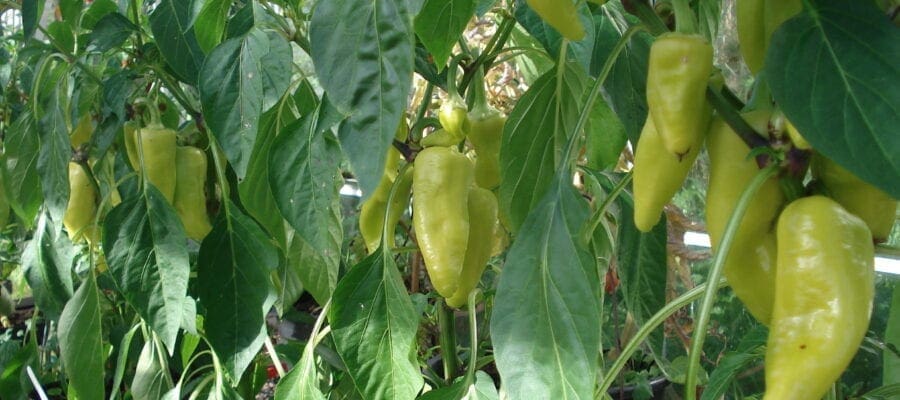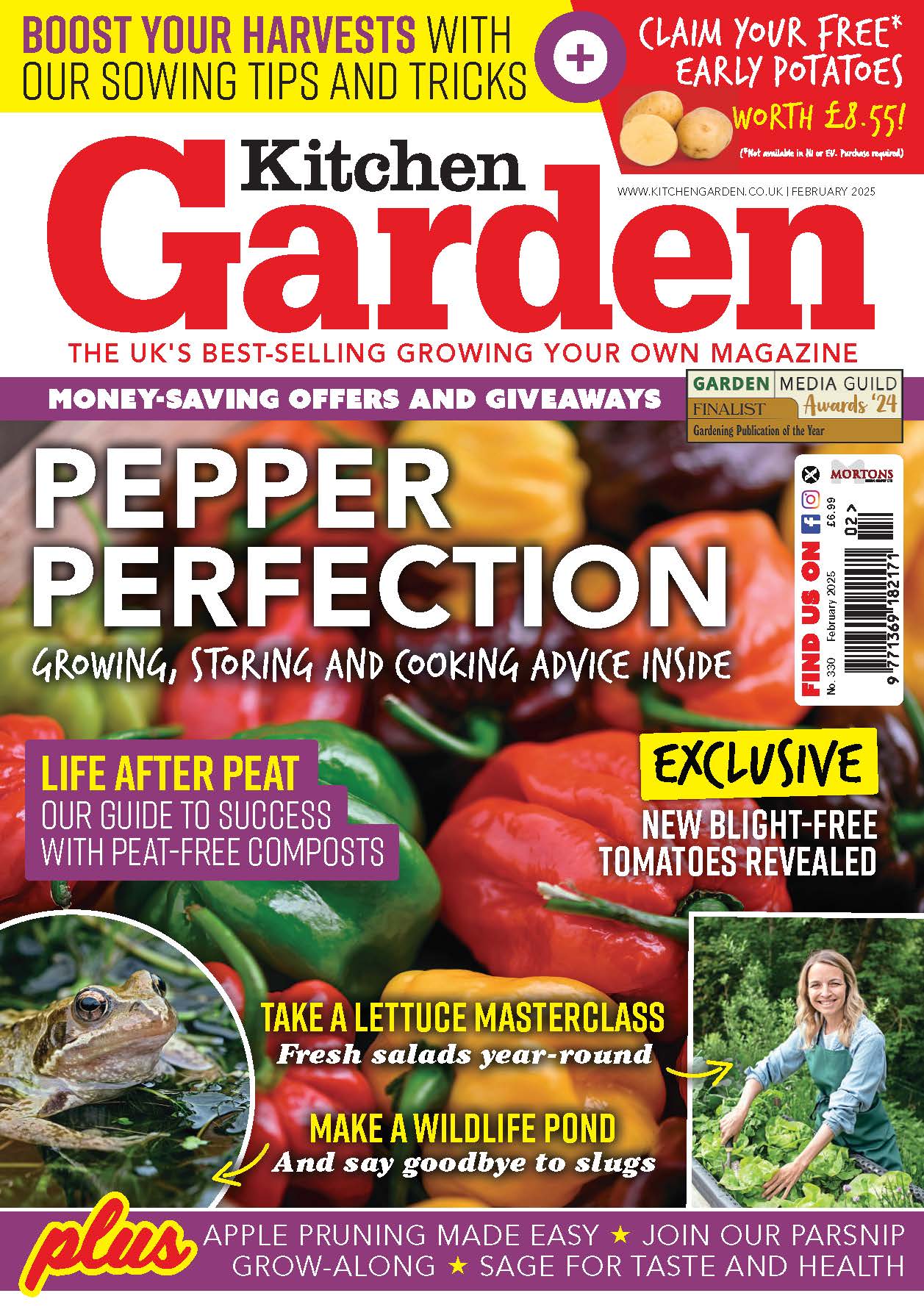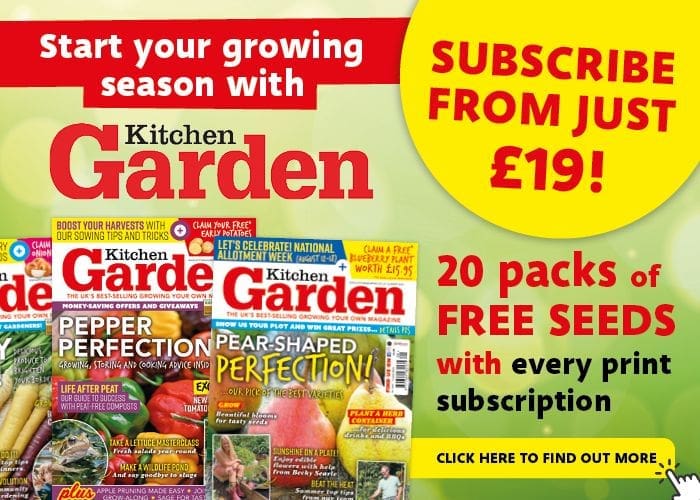In our first Subs Club for April, for KG subscribers only, we catch up with news and views… from plots as far away as Uzbekistan! Read on.
Grow more veg or pay more tax
Pictured above: banana peppers, hot in Uzbekistan
The government of Uzbekistan has told its citizens to use their gardens ‘efficiently’ or face a triple land tax, according to BBC Monitoring’s ‘News From Elsewhere’. An Uzbek news website reports that officials will inspect every household twice a year to ‘study the public’s interest in farming, building a greenhouse, and keeping livestock or chickens’. The inspections will apparently be carried out by police, tax inspectors and local prosecutors, and if they find that a household has failed to ‘use the land efficiently’ by not growing crops or keeping farm animals, its land tax will be tripled.
President Shavkat Mirziyoyev is reported to have expressed dismay that his citizens were buying staples such as potatoes and milk rather than producing their own. “I am sorry to say this, but people have stopped doing hard work,” he said, according to another Uzbek news site. “Uzbek people should work in their gardens.” He himself owns 110 chickens, sending the eggs to his home village in exchange for meat and yoghurt – and despite having been president since 2016, he still cleans the chicken shed every weekend.
Read more at http://www.bbc.co.uk/news/blogs-news-from-elsewhere-43540551
Big year for small birds
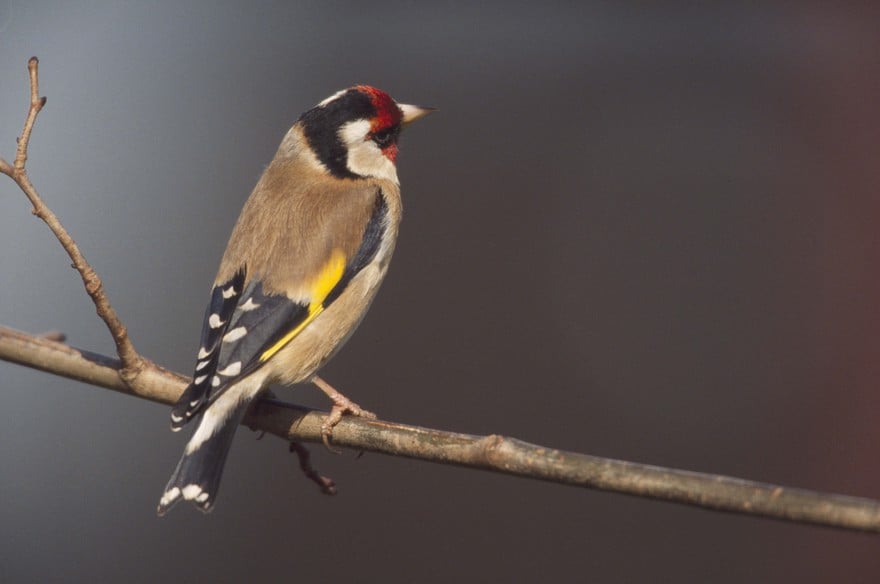
Increasing in numbers: the goldfinch – up 11% in 2018. Picture: Andy Hay (rspb-images.com)
The 2018 RSPB Big Garden Birdwatch results reveal a record year for the goldfinch and a number of other small birds. Now in its 39th year, the Birdwatch is a nationwide count taking place over the last weekend in January. This year, more than 420,000 people took part, counting 6.7 million birds.
This year’s count revealed an increase in goldfinches and other smaller birds, such as long-tailed tit and coal tit, which usually visit gardens in flocks. Sightings of the brightly coloured, sociable goldfinch rose by 11% on 2017 figures, with it being seen in more than two-thirds of gardens. Other small birds that are thought to have benefited from the mild January weather include the long-tailed tit (+16%), coal tit (+15%) and blue tit (+5%). It was also a good year for the greenfinch (+5%), a welcome sign for a species that has undergone a 58% decline in sightings since the first survey in 1979.
RSPB conservation scientist Daniel Haymow says: “Last summer was a really good year for many breeding birds with warm weather creating great conditions for many smaller birds to raise their young to adulthood. The rise in sightings of goldfinch, long-tailed tit and coal tit, along with chaffinches and greenfinches, goes to show that in the absence of cold weather they can survive the winter months in good numbers.” However, the survey also highlighted a dip in the number of blackbirds (-18%), robins (-12%) and wrens (-11%).
The house sparrow remained at the top of the Birdwatch rankings, with more than one million recorded sightings over the weekend. The starling held the second spot again, with the blue tit moving up one spot to round off the top three.
For all the RSPB Big Garden Birdwatch findings and local results go to https://www.rspb.org.uk/about-the-rspb/about-us/media-centre/press-releases/big-garden-birdwatch-results/
Big Dig day approaching
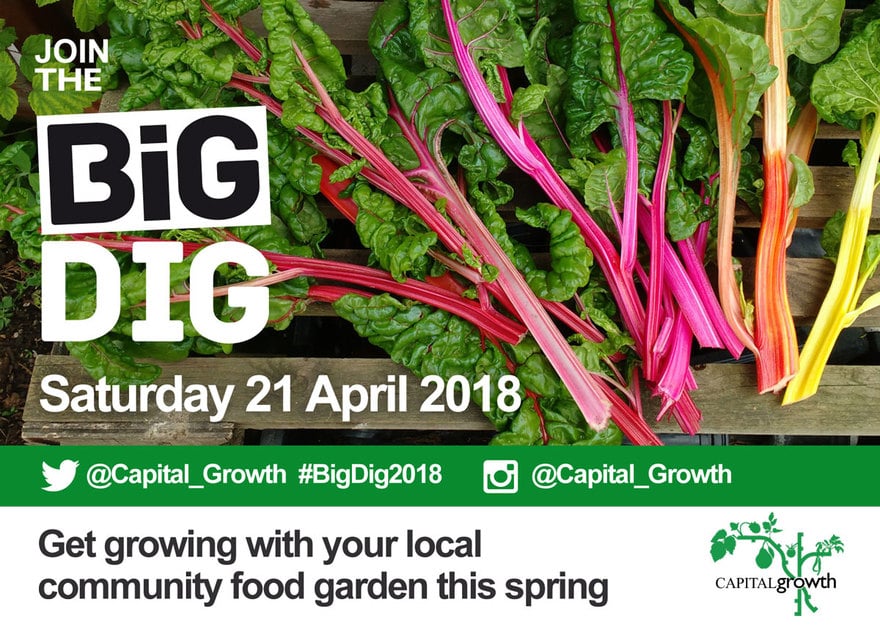
Can you dig it?: Big Dig is happening soon
Join hundreds of volunteers as they pull on their wellies and head out to help London’s edible gardens get ready for the new growing season. This year’s Big Dig takes place on Saturday, April 21. Activities, hours and locations vary, so you can find a garden to suit you. No gardening experience is necessary, and all ages are welcome.
There’s an interactive map which you can use to find a garden to volunteer in, and London community gardens can sign up to attract volunteers and join Capital Growth’s network, which currently stands at 2767 growing spaces. Any London food-growing garden of one square metre or more is eligible to join.
The Big Dig started in 2012 to engage new volunteers in local food-growing projects. In 2017, 48 London gardens took part, welcoming over 600 volunteers to help dig plots, plant seedlings, build garden infrastructure, get to know their neighbours and make new friends.
Find out more and get involved at http://www.capitalgrowth.org/bigdig/
Cold comfort on March weather
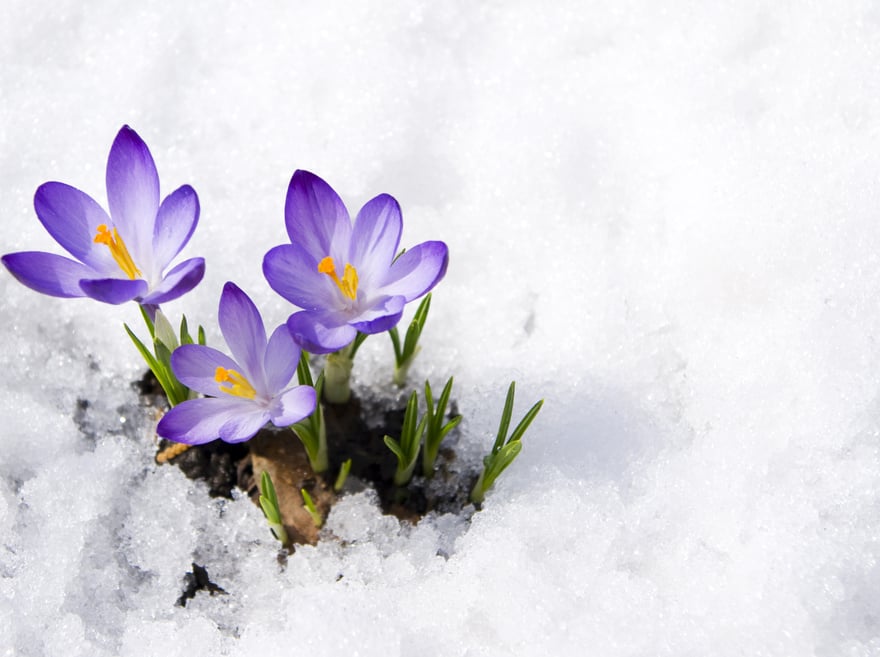
Providing a dash of cheer in the cold: crocus in snow
Gardeners lamenting the snowbound start to the season might think that March 2018 set new temperature records. That’s not the case, says the Met Office – 2013 was colder; our memories are short.
Mean temperatures for the month were well below average in all areas, typically by nearly 2C. However, this was around 1.5C less cold than March 2013, which was the coldest March since 1962 and the joint second coldest on record. March 2018 was the third coldest in the last 30 years – but falls outside the top 10 coldest Marches since 1910, when records began.
However, maximum temperatures on the first two days of March 2018 were very unusual, with negative figures being recorded widely. Air temperatures in large parts of the country stayed below zero for more than 48 hours.
Precipitation (frozen and otherwise) for the UK as a whole was only 10% above average in March – but it was distributed in an unusual way, partly due to the predominately easterly winds. It was notably dry in north-west Scotland, but a swathe from Cornwall right up to Aberdeenshire was very wet, with some places more than doubling their March average.
Find out more at https://www.metoffice.gov.uk/news/releases/2018/march-statistics
Plastic… not so fantastic?
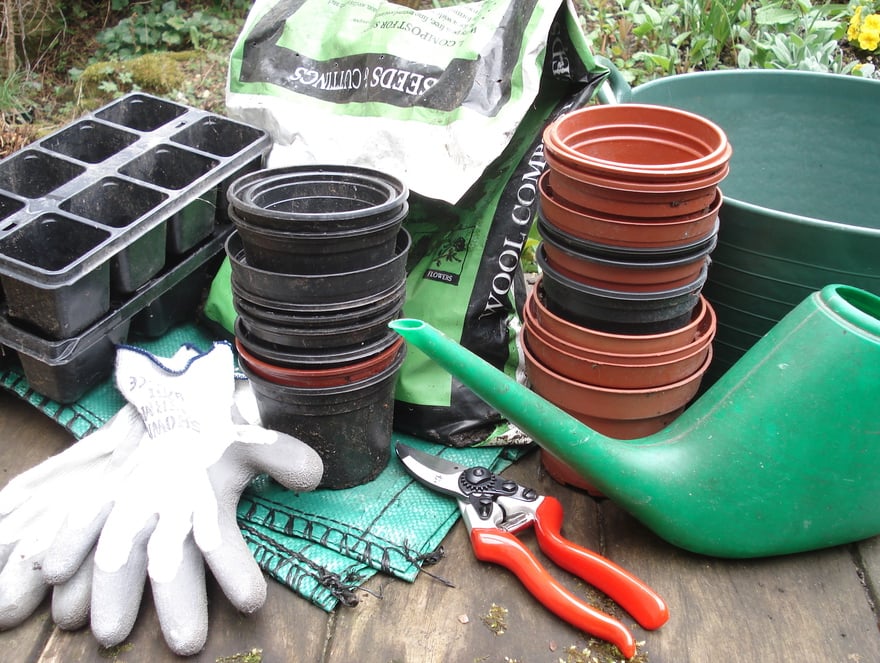
Everywhere: garden plastic
Our 21st-century gardens are full of plastic, from pots to wheelbarrows and fleece to polytunnels. Plastic use in the garden is a vexed issue which has been simmering for years, but recent debate about the need to stem the tide of plastic waste in the oceans and in landfill has brought it to a head. Some argue that we should aim to end all plastic use, on the basis that nothing we do as gardeners should impact negatively on the wider environment. More pragmatic voices argue that moderate use of plastic is justified because it enables us to grow our own food, which delivers a net environmental benefit.
Garden Organic has produced a very helpful online advice page which addresses the issues and also the practicalities. It explains the different types of plastic – there are seven, and they have varying impacts and differ in the ease with which they can be recycled – and the pros and cons of bioplastic. It suggests ways to reduce your plastic usage – ‘the sustainable route is to reduce the amount of plastic we use, always reuse if possible, and check that the plastic is either made from recycled material, or can be recycled itself’ – and also offers ideas on how to encourage manufacturers and retailers to develop more eco-friendly alternatives.
Find out more at https://www.gardenorganic.org.uk/plastics-garden

